
Jon Stevens: “I was a big superstar – Justin Bieber equivalent in New Zealand”
We meet the Antipodean rock singer and Noiseworks/INXS frontman who went from teenage superstar to Jesus Christ Superstar and beyond
Antipodean singer-songwriter Jon Stevens is recognised as one of the most talented rock musicians to emerge from Australia. His solo career took off as early as 1980 when, at the age of 16, he topped the New Zealand charts with his first two singles. Luckily the commercial success didn’t stop there, as Jon went on to front Sydney rock band Noiseworks, who released three platinum studio albums between 1987 and 1991, followed by a greatest hits collection in 1992.
When the group split that year, Jon ended up performing in an Australian production of the rock opera Jesus Christ Superstar, before embarking on another phase as a solo artist. From 2000 to 2003, following the death of his friend Michael Hutchence, Jon was asked to take his place as the lead singer of INXS and toured with the band.
Over the last three decades, the New Zealander continued to ply his trade as a musician, songwriter and producer, collaborating with the likes of Slash and forming The Dead Daisies project.
And now, for Jon’s tenth studio album, Starlight, he joined forces with legendary Dave Stewart of Eurythmics, who co-wrote and produced the record, and recruited other stellar featured artists like Ringo Starr.
It sounded like a fascinating story, so we gave Jon a call to find out more…
Tell us about when you first started creating music.
“Yeah, I was always writing poems and stories – I grew up in a musical household. But I did an album when I was 16 or 17 years old, in New Zealand. It was one of those things I didn’t really want to do – it just happened. I’m the youngest of 11 children and my eldest sister knew a guy who had a recording studio. He was looking for singers, so she suggested me and he said, ‘Bring him in and I’ll give him a go.’ She talked me into going in to sing a few songs, then before I knew it CBS wanted to release them and one of them become No 1 and I was still unsigned! I was pressing vinyl albums in a factory at EMI. So I became a part of the music industry without really wanting to be in it.
So you were a teenage superstar?
“Roll forward 18 months and I was a big superstar – Justin Bieber equivalent in New Zealand – the biggest you could get in 1979, but my career was over within a year. I was over-exposed, they played me all the time and I hated it – I hated me. So I left and met Lance Reynolds in Australia. He was managing bands in America, he saw me and said, ‘Oh man, you’re awesome, do you want to come to America? I’ve got a studio over there and some people I want you to work with.’ So I went over and he introduced to me to Trevor Lawrence who’d co-produced with Richard Perry – he did the Pointer Sisters and all that stuff.
“Then he introduced to Jeff Barry, who taught me to write songs – he wrote River Deep Mountain High and Be My Baby. He’d also written Montego Bay, which was my second single and a big No 1 in New Zealand. So I met him in LA in 1980 and he, Trevor and I wrote a couple of songs together. I remember sitting in a room with him and he couldn’t play an instrument, but he could juggle words in mid-air and I was fascinated. Trevor would play and I’d sing melodies, not really knowing what’s going on, just plugging into the subconscious – I didn’t even know what it was. We’d have a couple of joints and off we’d go! We’d just come out with all these lyrics, non-stop and Jeff would keep throwing things at me, so I had to keep up. When I found he wasn’t a trained musician, it made it even more fascinating for me. How do you do that?! I realised there was something amazing that this guy was doing and I wanted to know what it was.”

Jon: “You’ve got to let go, recognise the moment and whatever pops into your consciousness, you try to expand on that”
Do you think that was down to Jeff’s work ethic or did you feel it was still magical and pure artistry?
“Oh I thought it was very artistic, almost other-worldly actually. He likened it to ‘channeling’ – get out of the way of what’s coming through and just spit it out. He’d just grab it. In those days we didn’t have Walkmans, so you’d just have to capture it. You’ve got to let go, recognise the moment and whatever pops into your consciousness, you try to expand on that.”
Do you only go with stuff you remember, or do you record all your ideas now?
“Oh no, once recording came in I recorded everything that moves! Because I’m able to listen back and go, ‘That bit was good, oh and that’s shit!’ Whatever works for you really, but for me – especially as a singer – you can capture that moment of free-flow and capture that. Generally, 97 percent of the time, the first thing that comes out of my mouth is right.”
What happened after that album you made in LA?
“I came back to Australia and hooked up with Stuart Fraser in 1982. We’d been playing guitar, writing stuff together and hanging out. We were the same age, so we’d just have a beer, play rock ‘n’ roll and write songs. We were just mates who wanted to be in a band together and so we became Noiseworks.”
What was the dynamic between the two of you?
“Well, I’d go round to Stuart’s place, take him cigarettes and get him out of bed, because he was a pot-head! We’d sit and jam all day – that was the routine. We were writing and writing, and then we’d go into a rehearsal room. We went through a couple of different drummers and a couple of bass players, so I think there was three years of tinkering with personnel. So as soon as we came up with some song ideas, we’d call up whoever and say, ‘Hey man, we’re in the rehearsal room, come and have a jam.’ Then we’d jam the ideas with different people until we found someone who could add to the equation.”
Looking at your time with Jesus Christ Superstar and with INXS, your career has been punctuated by phases when you’ve been performing other people’s songs. Was that a conscious decision to take a break from writing your own music?
“The songwriting has never stopped – I’ve always been writing. Even when I was in INXS, I spent four years touring with them and writing songs with various members of the band. I just didn’t write with Andrew Farriss, and when he eventually decided he wanted to write with me I was under instructions. I was under strict instructions from the management that I wasn’t allowed to work with any of the rest of the band.
Really? So how did you end up performing in Jesus Christ Superstar?
“When Noiseworks blew up in ’92, it just so happened that a few months later I got the call to do Superstar – that was just luck. I was already working on the Are You Satisfied album, and I never wanted the band to split up, so that wasn’t my choice. Other members wanted to go their own way so we decided that was enough – we were just sick of each other!”

Jon on Dave Stewart: “The first thing he said to me was, ‘Do you drink?’…and he goes – and I quote – ‘Martinis at seven!’”
Tell us about your new album. How did you approach it?
“I’d made the Woman album in 2015 and I’d come out of The Dead Daisies, and then I was talking with a friend of mine in London. We talked about doing some gigs together in Europe and I said, ‘I want to make another record, but I don’t have the stomach to produce this one, so I want to get a producer. Do you know any?’ He started reeling off names and mentioned Dave Stewart. I said, ‘I’ve met Dave and I love his work!’ He wouldn’t have remembered but I’d toured with him in 1987. He sent Dave the Woman album and within a few months I was working in the studio with him. The first thing he said to me was, ‘Do you drink?’ I went, ‘Oh y’know, I have a couple here and there,’ and he goes – and I quote – ‘Martinis at seven!’ Then 15 minutes later we’re sitting in a room together, talking to each other, playing guitars and we start writing. I never played him one song or one idea I’d written; we wrote everything in a stream of consciousness, in the moment. It was beautiful and it was really reassuring to me, to be working with a guy who still wonders how it happens – he just let it take us on this journey.”
Did he specifically ask you to turn up with any material in progress?
“No, it just happened like that. It was purely natural and soulful. We talked about different things, and it just came out. We plugged into each other really quickly.”
Ringo Starr features on One Way Street. How did you get him onboard?
“I met him at Dave’s house – they’re best buddies. We were hanging out, pulled out the acoustic guitars and singing some songs. When we’d written One Way Street, I said, ‘Dave, do you think we can get Ringo to play on this?’ And he said, ‘Let’s ask him.’ So we sent the song over to him and he loved it. God bless him, he was on tour with the All Starr Band and he flew over on his day off, we recorded the drums at his house and then he went back out on the road! It was amazing, one of the highlights of my life, without a doubt!”
While we’re talking about legendary collaborators, tell us about writing with Slash.
“I met him in about ’97 and we just recorded some songs together at his house. I was living in LA at the time and we became good mates. We came up with Lock ‘n’ Load in ’98 or ’99. I’ve got tons of songs I’ve written with different people, but they’re just songs in a bag. When I did The Dead Daisies project, it needed another song and I thought of Lock ‘n’ Load and how it’d be perfect for that record. So I called Slash and said, ‘I want your well-wishes to record Lock ‘n’ Load and I’d love for you to play on it.’ He heard the first album and said, ‘That’s cool man, go ahead,’ so we recorded it in Melbourne and took it back to LA and got Slash to play guitar on it – the beautiful guy that he is! That’s the story really.”
Interview: Aaron Slater
Jon Stevens’ new album Starlight is out now. Find out more at jonstevens.com

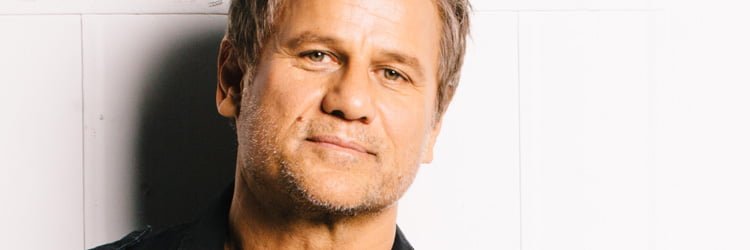

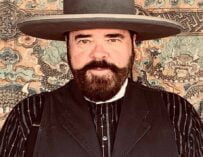


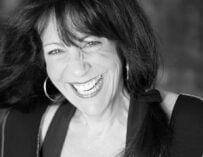



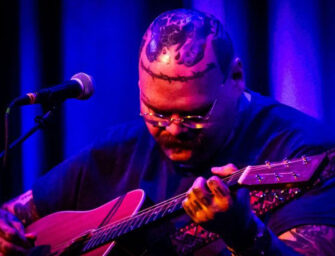
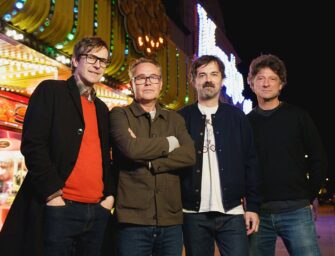





















Related Articles